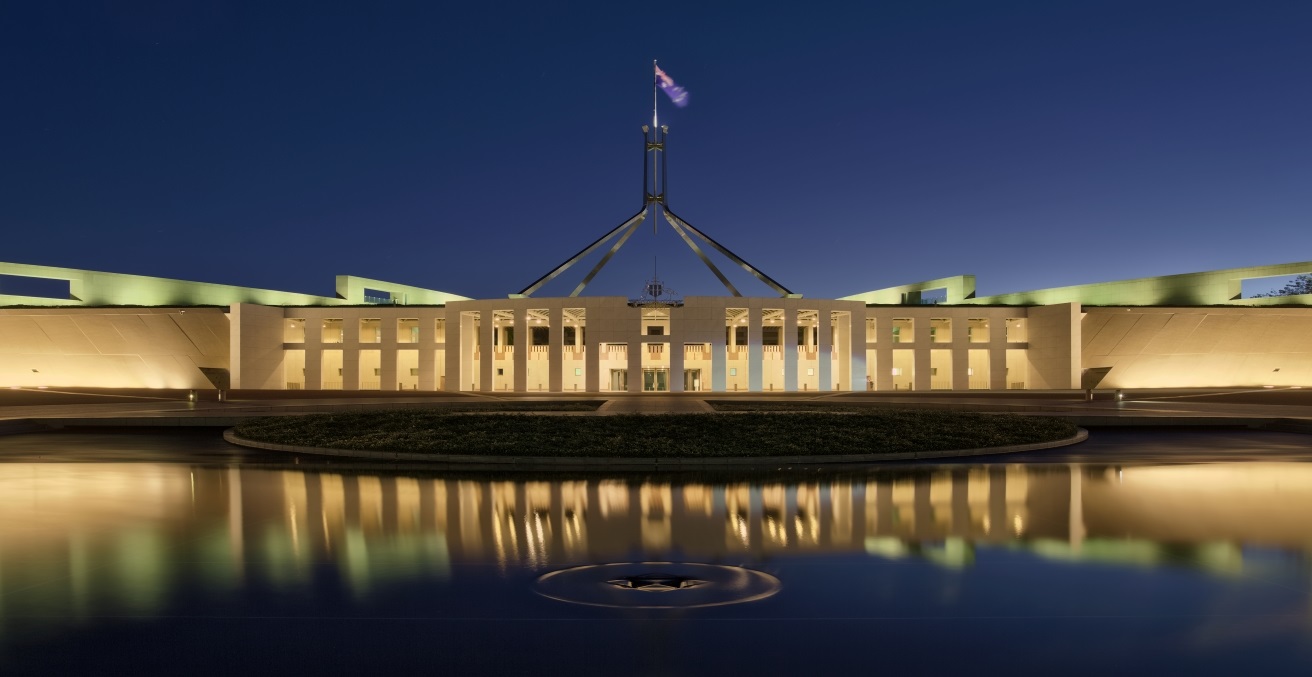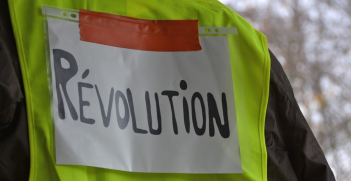14 May: The Week in Australian Foreign Affairs

This week in Australian foreign affairs: Payne on Israel, the first India-France-Australia Trilateral Ministerial Dialogue, Payne’s visit to Afghanistan, the 2021-22 Budget, and more.
Minister for Foreign Affairs Marise Payne issued a statement on 12 May, where she said that “the Australian Government is deeply concerned by the escalating violence in Israel, Gaza and the West Bank and unequivocally calls on all leaders to take immediate steps to halt violence, maintain restraint, and restore calm.” She further called on “all parties to refrain from unilateral actions that destabilise peace” and stated that “violence is no solution. Rocket attacks and indiscriminate acts that fuel the cycle of violence and bloodshed are never justified.”
On 7 May, Payne, alongside her Indian and French counterparts, delivered a joint statement on the first India-France-Australia Trilateral Ministerial Dialogue following their meeting in London on 4 May. The statement noted that, “India, France and Australia are committed to advancing their shared values and working together to achieve a free, open, inclusive and rules-based Indo-Pacific.” India thanked France and Australia for their assistance in India’s response to the COVID-19 pandemic, and the Ministers “agreed to enhance trilateral cooperation in confronting the challenges emerging from COVID-19.” The Ministers also “reviewed the outcomes of the first India-France-Australia Foreign Secretaries’ Trilateral Dialogue, held on 9 September 2020, which have progressed on three pillars: maritime safety and security, marine and environmental cooperation, and multilateral engagement.”
Payne visited Kabul, Afghanistan, on 10 May, where she met with HE President Ashraf Ghani, Minister for Women’s Affairs Hasina Safi, and Chair of the High Council for National Reconciliation, HE Abdullah Abdullah. The discussions included “the challenges of COVID-19, the international troop withdrawal, support for a stable and secure Afghanistan, and our shared hopes for the ongoing peace negotiations.” Payne further noted that, “with the departure of the Australian Defence Force, the Australia-Afghanistan relationship is beginning a new chapter of our diplomatic relationship, established in 1969. We will continue our close friendship, and support our shared aspiration of peace, stability and prosperity.”
On 11 May, Payne and Minister for Trade Dan Tehan issued a statement on the 2021-22 Budget, which includes $4 billion in Official Development Assistance (ODA), “with an ongoing focus on health security, stability and economic recovery in the Indo-Pacific, including $1.44 billion for the Pacific and $1.01 billion for Southeast Asia.” The Government has also announced “temporary and targeted measures to support the ODA budget” due to the impact of COVID-19 on the Indo-Pacific region. This includes an estimated $319 million in additional ODA in 2021-22. Moreover, Australia will provide $37.1 million over two years from 2020-21 for a COVID-19 support package for India. The Government will also invest $198.2 million over four years from 2021-22 “to support Australian exporters and businesses, deliver our Indo-Pacific priorities, and expand our advocacy and cooperation with partners internationally.”
Tehan and Minister for International Development and the Pacific, Zed Seselja, announced on 7 May that the Morrison Government has “helped arrange the delivery of urgently needed stocks of medical-grade ethanol to Fiji”, which is used in COVID-19 testing kits. Seselja also noted that “a batch of 10,000 Australian made vaccines touched down on a Royal Australian Air Force (RAAF) flight last night along with more than two tonnes of medical supplies to bolster Fijis’s COVID-19 response.”
On 7 May, Prime Minister Scott Morrison announced that government-chartered repatriation flights from India will resume on May 15, after the completion of the current temporary ban on re-entry. The flights will arrive at the Centre for National Resilience at Howard Springs, with one flight per 7-9 days. Morrison stated that “the global COVID-19 pandemic continues to rage outside Australia’s borders and the temporary pause on flights continues to give our quarantine facilities time to reduce infection rates and reduce the risk of COVID escaping into the community.”
Morrison addressed the Australia-Israel Chamber of Commerce on 6 May, where he stated that, “We will not associate Australia with one-sided and contentious language that singles out Israel … I do not accept that anti-Semitism, cloaked in the language of human rights, serves any justified purpose nor the cause of peace.”
On 12 May, Minister for Defence Peter Dutton and Minister for Defence Industry Melissa Price issued a joint statement on the 2021-22 Budget. Dutton stated that the Budget “continues to see sustained strong investment in Australia’s national security, building Defence capability and creating jobs, boosting Australia’s cyber resilience and supporting Australia’s sovereign defence industry.” The Budget includes a $59.2 million investment in Operation Resolute, “to support the whole-of-government effort in protecting Australia’s borders and offshore maritime interests through surveillance and response.”
Price announced the fifth edition of the Australian Defence Sales Catalogue on 7 May, “a key export marketing tool, showcasing Australia’s world-leading companies, products and services.” Price noted that the Catalogue “is aimed at foreign governments but also includes information on government support services available to Australia’s defence industry sector who may be seeking to maximise export opportunities.”
Isabella Keith is an undergraduate student at the Australian National University studying Law and Politics, Philosophy and Economics. She is currently an intern at the AIIA National Office.
This article is published under a Creative Commons License and may be republished with attribution.





